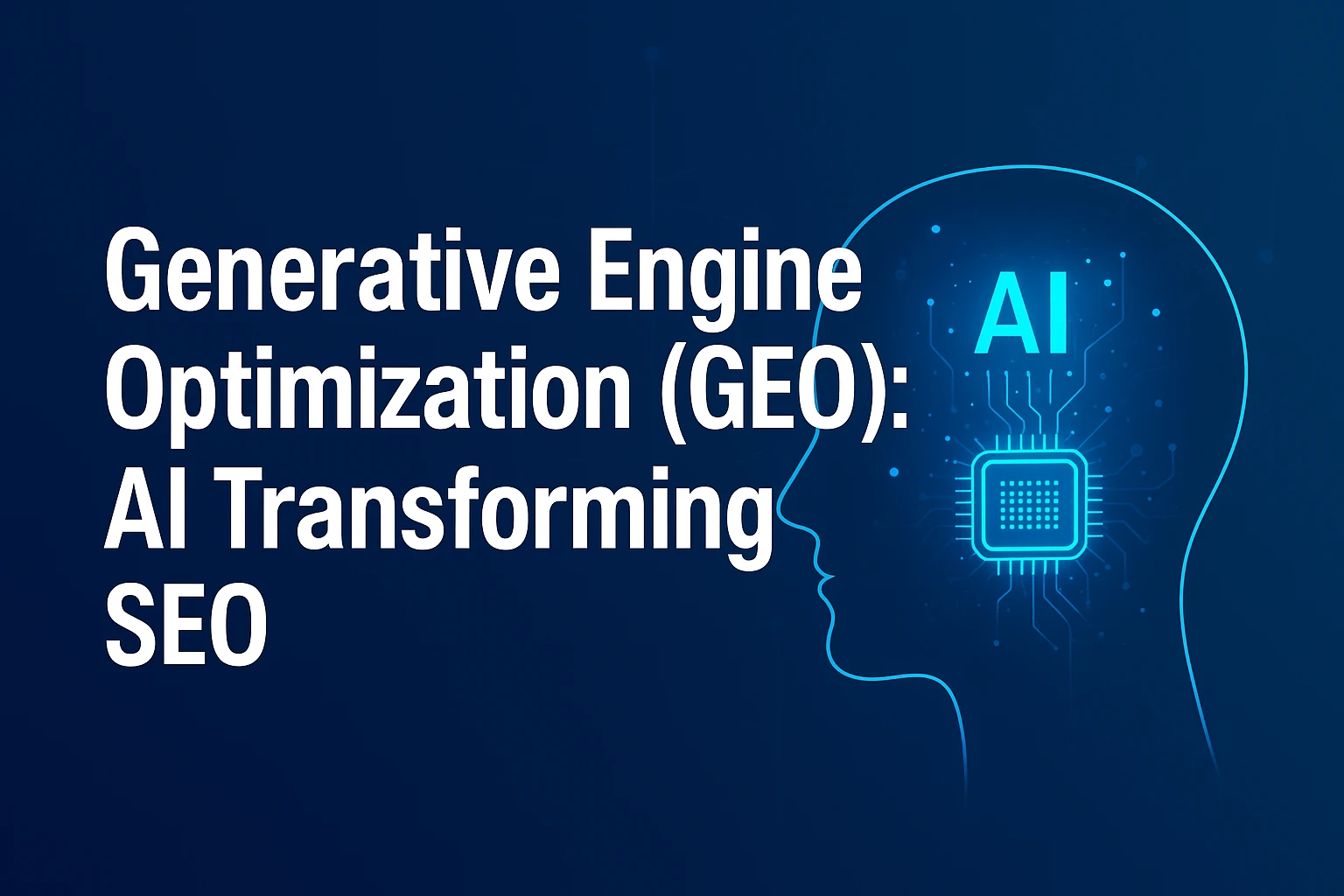Table of Contents
Introduction: The Dawn of a New SEO Era
“Imagine a world where search engines don’t just list links, but understand your intent, predict your needs, and deliver personalized answers instantly—this is the future of SEO powered by AI.”
For decades, SEO has been about understanding algorithms and optimizing websites to rank higher. From early strategies focused on keyword density to the rise of semantic search, mobile-first indexing, and user experience optimization, SEO professionals have continually adapted to changing technologies and user expectations.
Today, the digital landscape is evolving at lightning speed. Users demand instant, accurate, and highly relevant answers, and the sheer volume of online content makes it increasingly difficult for businesses to stand out. Traditional SEO tactics alone are no longer enough to thrive.
Enter Generative Engine Optimization (GEO)—an AI-driven approach that is transforming content creation, search rankings, and user engagement. GEO leverages generative AI to create, optimize, and personalize content at scale, while anticipating the needs and intentions of users in real-time.
Unlike conventional SEO, GEO is not just a set of tactics—it’s a strategic evolution, enabling businesses to:
- Generate high-quality, user-focused content efficiently.
- Optimize for AI-driven search results, where answers are synthesized and delivered directly.
- Personalize digital experiences, improving engagement and conversions.
- Automate and scale SEO processes, maximizing efficiency and impact.
With GEO, SEO shifts from static optimization to dynamic, intelligent strategies that adapt to both user behavior and AI-powered search algorithms, heralding a new era in digital marketing.

The Pillars of Generative Engine Optimization (GEO)
1. AI-Powered Content Generation
- Automated Content Creation: AI generates articles, blog posts, product descriptions, social media updates, and video scripts, allowing human writers to focus on strategy and creativity.
- Content Diversification: Produce multiple content versions for different audiences, platforms, or stages of the buyer journey.
- Semantic Understanding: AI understands language nuances, producing content that genuinely answers user queries.
- Fact-Checking & Augmentation: AI tools can enhance content with verified data and statistics.
2. Generative Search Engine Understanding & Adaptation
- Direct Answer Optimization: GEO structures content for AI-powered search results like Google’s Featured Snippets.
- Contextual Relevance: AI analyzes the intent behind queries, not just keywords.
- Predictive Trend Analysis: AI identifies emerging topics and proactively guides content creation.
3. Hyper-Personalization & User Experience
- Dynamic Content Delivery: AI tailors content in real-time based on user behavior, device, and location.
- Adaptive User Journeys: AI guides users through websites with relevant recommendations at each step.
- Conversational SEO: Optimizes content for voice search and chat-based interactions.
- Sentiment Analysis: Refines content strategy based on user sentiment.
4. Automated Technical SEO & Data Analysis
- On-Page Optimization: AI suggests optimal keyword placement, meta descriptions, internal linking, and titles.
- Auditing & Diagnostics: Identifies and fixes technical SEO issues like broken links and slow page speeds.
- Predictive Analytics: Forecasts SEO performance from trends and historical data.
- Competitive Analysis: Quickly identifies gaps and opportunities in competitors’ SEO strategies.
The Impact on SEO Professionals
GEO doesn’t replace SEO specialists—it elevates their role. With AI handling repetitive tasks, SEO professionals can focus on:
- Strategic Oversight: Guiding AI tools and defining content strategy.
- Creativity & Innovation: Generating new content ideas and campaign strategies.
- Ethical Oversight: Ensuring AI-generated content is accurate and aligns with brand values.
- Deep User Insights: Leveraging AI data to connect with audiences more effectively.
SEO professionals become AI orchestrators, combining strategy, creativity, and technology.
Learn how AI is transforming other industries, such as stock trading or global economic strategies.
The Future of Search with GEO
The search landscape is evolving into an intelligent, intuitive, and personalized experience. Generative AI enables search engines to synthesize information and deliver direct answers, transforming how users interact with content.
Businesses that embrace GEO can:
- Stay ahead of competitors by adapting early to AI-driven search.
- Increase visibility in both traditional and generative search results.
- Boost engagement through personalized, relevant content.
- Scale content production efficiently across multiple channels.
Generative Engine Optimization (GEO) is no longer optional—it’s the new standard for success in the digital era.
For more insights, explore how AI enhances SEO strategies in 2025 or its role in creative industries.
Conclusion
AI-powered GEO is revolutionizing SEO, transforming it from a task-driven process into a dynamic, intelligent strategy. By integrating AI into content creation, optimization, and user experience, businesses can achieve unprecedented levels of efficiency, personalization, and engagement.
Call to Action: Start exploring AI-powered tools and integrate GEO into your SEO strategy today to stay ahead in the AI-driven search era.
For further reading, visit Search Engine Journal for the latest SEO trends and insights.


